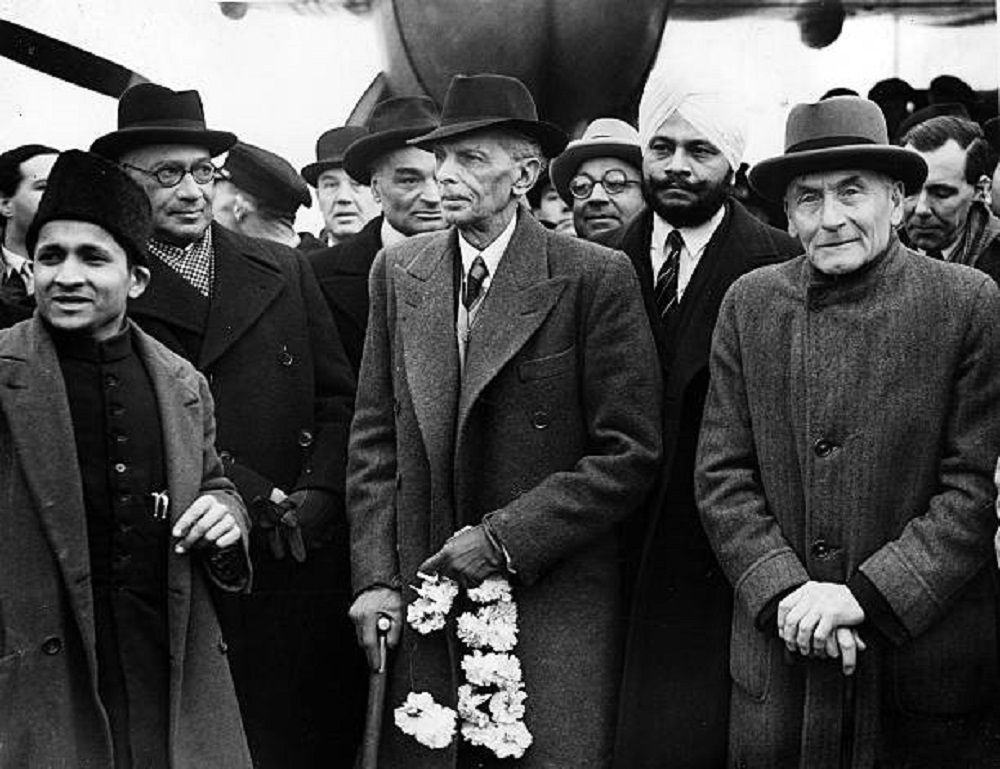Written by: Dr. Dushka H. Saiyid
Posted on: August 13, 2024 | 
Rattanbai 'Ruttie' Jinnah and Muhammad Ali Jinnah
There are some salient features about the making of Pakistan: the Quaid-e-Azam Muhammed Ali Jinnah, accomplished this task single-handedly, against the opposition of the Congress and the British colonial power. However, the Congress propaganda machine would have us believe that it was an outcome of a policy of divide and rule. The fact remains that the Western powers wanted a monolithic India by 1947 as the Cold War had started by that time.
It was a constitutional struggle till the Quaid felt that there was a need for flexing of muscles, as the struggle for Pakistan was falling on deaf ears. There followed the Direct Action Day on 16 August 1946, after the Congress reneged on the Cabinet Mission Plan, which led to violence and a blood bath in pre-partition Bengal.
A confirmed progressive on women’s issues, the Quaid piloted the Shariat Bill (that gave women property rights in pre-partition Punjab), Child Marriage Bill of 1929, also known as the Sarda Act, came into operation on 1st April, 1930. The Quaid’s position was uncompromising: “But, Sir, I make bold to say that if my constituency is so backward as to disapprove of a measure like this, then I say, the clearest duty on my part would be to say to my constituency, ‘You had better ask someone else to represent you’.
The Quaid also supported the Shariat Act of 1937. The Muslims of Punjab wanted the customary law to be replaced by the Shariat as it would give Muslim women rights over property, which was denied to them by customary law. However, muscle was taken away from the Bill when agriculture was made a provincial subject, as 90% of the property in Punjab consisted of agricultural land. The government of the day did not wish to upset the landed aristocracy that had a strong presence in the provincial legislature.
Again, it was Quaid-e-Azam Muhammad Ali Jinnah who initiated the formation of a women’s wing of the Muslim League at Patna in 1938. It resulted in the emergence of a galaxy of Muslim women leaders, particularly from the Punjab: Begum Hafizuddin, Begum Jahanara Shahnawaz and Baji Rashida Latif. Earlier, Jahanara Shahnawaz’s husband, Mian Sir Muhammad Shahnawaz had played an important role in writing the Report of the Consent Committee. Both Jinnah sahib and Sir Shahnawaz supported the Child Marriage Bill that was passed on 28th September, 1929. Both Jahanara and Sir Mian Shahnawaz were a dynamic couple who played an important role in the movement for Pakistan.

(L to R) Mr Jinnah, Liaquat Ali Khan, Sardar Baldev Singh and Lord Pethick-Lawrence arrive in London in December 1946 (from Getty Images)
It was the Quaid who brought women out on the streets of Lahore, by visiting girls’ colleges and mobilizing women. At a function held in the grounds of Town Hall, a young student of the Lahore College of Women exhorted Muslim men to educate the Muslim men of India to educate Muslim women of India. The name of the young girl was Azra Khanum, and she typified the spirit running through young Muslim women at the time.
Over a hundred meetings were held by the Muslim League before 12 February 1946, and loyalty to Islam was invoked by the men and women who were involved in the electioneering campaign. Women and students helped at public meetings and polling booths. Women’s level of activity can be gauged from the meetings they held in Simla, Amritsar, Gujranwala and Lahore.
The Muslim League was excluded from the government as Glancy, the Governor of Punjab, cobbled together a coalition government of the rest of the political parties, with Khizr Hayat Tiwana as the Chief Minister. The Muslim League had little option but to offer passive resistance. On January 24 1947 there were two processions of Muslim women, one on Temple and another on Lawrence Road. The latter consisted of five hundred women. Both the processions were tear gassed and some of the girls from Islamia College fainted and were taken in ambulances to the hospital. The demonstration on Temple Road re-grouped and marched to the Assembly Chambers. Some young women were arrested under Public Ordinance Section 144: Nasira Siddiqui, Qamar Parveen, Begum Karim Dad and Mumtaz Shahnawaz, the daughter of Jahanara Shahnawaz. The agitation spread to other areas as shopkeepers went on strike, held processions and courted arrest.
The role of Muslim women in the civil disobedience movement was unprecedented, for not only had they shed the seclusion of their homes, but were courting arrest.
As we celebrate 74 years of Pakistan’s independence, it is time for some rethink of what we have achieved, and where we have fallen short. In this the scar of 1971 runs deep, as it split the nation into half. Our heart still beats for what was East Pakistan, and let us not repeat the same mistakes in Balochistan!
Pakistan Zindabad!
(Most of the material is derived from my book: Muslim Women of the British Punjab: From Seclusion to Politics, Published by Macmillan, 1998).
You may also like: